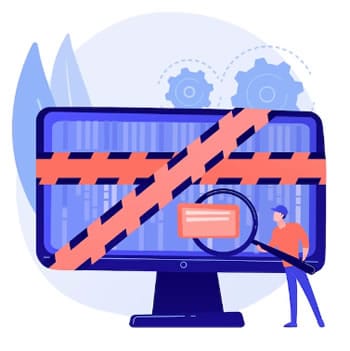
The rapid rise of digital technologies has revolutionized the way people interact and do business, with many transactions being conducted online. Kenya has not been left behind in this digital transformation, with many industries including the insurance sector adopting digital platforms for various services. This article explores the use of digital forensics in investigating insurance claims in Kenya and the human touch approach that is necessary in handling these complex cases.
Contents
What is Digital Forensics?
Digital forensics refers to the process of preserving, collecting, analyzing, and presenting digital evidence in a manner that is admissible in a court of law. It involves the use of specialized tools and techniques to extract and preserve digital evidence from various devices such as computers, smartphones, and other digital storage devices. The ultimate goal of digital forensics is to provide unbiased and accurate evidence that can be used in legal proceedings.
Importance of Digital Forensics in Insurance Claims
- The insurance industry relies heavily on the assessment and investigation of claims to determine the validity of each case.
- With the increasing use of digital technologies in the insurance sector, the need for digital forensics in investigating claims has become more critical.
- Digital forensics provides an objective and reliable source of evidence that can be used to support or refute claims, allowing insurance companies to make informed decisions.
The Human Touch Approach in Digital Forensics for Insurance Claims
Despite the use of sophisticated tools and techniques, digital forensics is not just about technology; it also requires a human touch approach. This approach recognizes the fact that digital evidence often involves people and their personal data, and therefore requires sensitivity and care in handling it. The human touch approach involves ensuring that the rights of all parties involved are respected and that evidence is handled in an ethical and responsible manner.
Challenges and Best Practices in Digital Forensics for Insurance Claims in Kenya
The use of digital forensics in investigating insurance claims in Kenya is not without its challenges. These challenges include limited technical expertise, limited access to specialized tools, and the need for collaboration between insurance companies and digital forensics experts.
Best practices in digital forensics for insurance claims in Kenya include continuous training and professional development for digital forensics experts, and the development of legal and regulatory frameworks to support digital forensics activities. It’s advisable to consult a digital forensics company in kenya for professional services.
Conclusion
The use of digital forensics in investigating insurance claims in Kenya is becoming increasingly critical as the insurance sector adopts digital technologies. A human touch approach is necessary in handling digital evidence, recognizing that digital evidence often involves people and their personal data. The challenges and best practices in digital forensics for insurance claims in Kenya must be addressed to ensure that the insurance sector can effectively leverage this critical tool in the investigation of claims.

